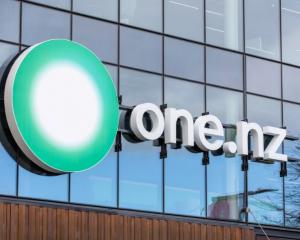The Inland Revenue Department has increased its focus on situations where it considers tax avoidance exists, meaning the issue has become more prominent, Dunedin tax expert Peter Truman says.
Where avoidance exists, IRD has the ability to reconstruct the arrangement to overcome the tax mischief it has identified as having occurred.
Mr Truman, a tax partner with Deloitte Dunedin, said IRD recently released a draft ''Questions We've Been Asked'' statement for public consultation, covering the practical application of some possible tax avoidance scenarios.
The statement was useful as it applied IRD's policy to practical situations.
''It is common practice for Inland Revenue to generally consult with the tax professional community before these statements are finalised to ensure all possible angles have been considered.
''While the document is in draft form it can't be relied upon. However, it gives a significant insight into Inland Revenue's thinking.''
Two scenarios highlighted by IRD were worth considering.
They were on interest deductions where shareholder loans are replaced and debt capitalisation, Mr Truman said.
In the first scenario, a company is wholly owned by a trust, with the trust having advanced $1 million to the company for use in its business operations.
The trust buys a holiday home for $1 million and asks the company to repay the loan.
The company borrows $1 million from a bank to refinance the original loan, secured over the assets of the trust, and claims a tax deduction for interest paid to the bank.
''Looking at the overall picture, it could be argued the bank borrowings are used to purchase the holiday home and therefore the interest shouldn't be deductible,'' he said.
IRD's draft position was the arrangement was not tax avoidance on the basis of Parliament's intention for interest deductions to be available where the funds had been used by the borrowing entity to fund taxable income-earning assets.
In the scenario, borrowed funds were used to replace the original shareholder loan that funded business assets.
A shareholder in a company was entitled to require a loan to be repaid to fund the purchase of another asset.
If confirmed, the view from IRD would be welcomed by shareholders who wished to extract funds advanced to a company so they could purchase additional assets, even when those assets were private, Mr Truman said.
IRD's draft view on debt capitalisation was it could, in some situations, be tax avoidance, on the basis it overcame the debt remission otherwise arising, particularly when there was a sole shareholder capitalising a non-trading company.
While many insolvent companies would not have any assets to pay tax assessed on a debt remission, in some cases, shareholders could have a personal liability for unpaid company debts.
''The draft approach will encourage shareholders to think more carefully, at the time when funds are used by a company, whether they are injected as share capital or as a shareholder loan.''











